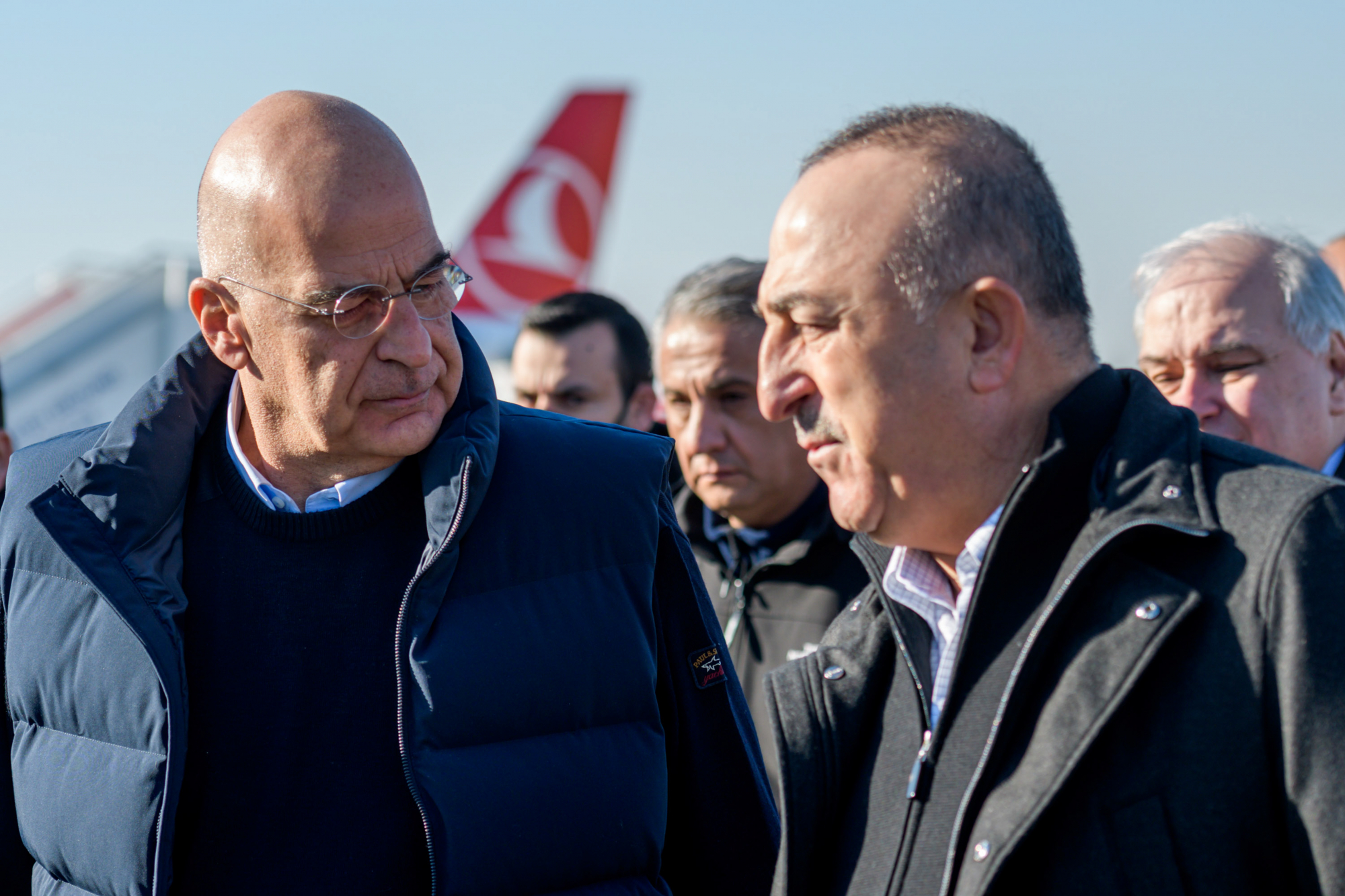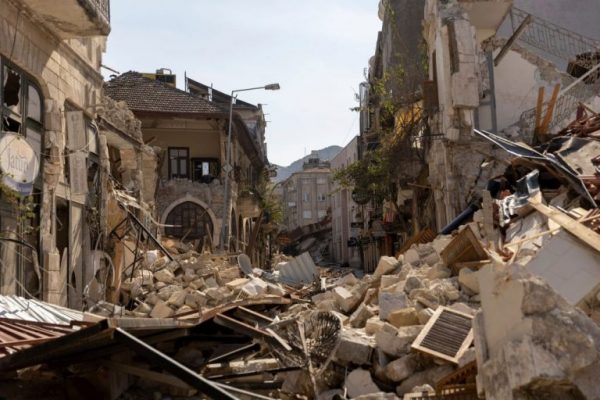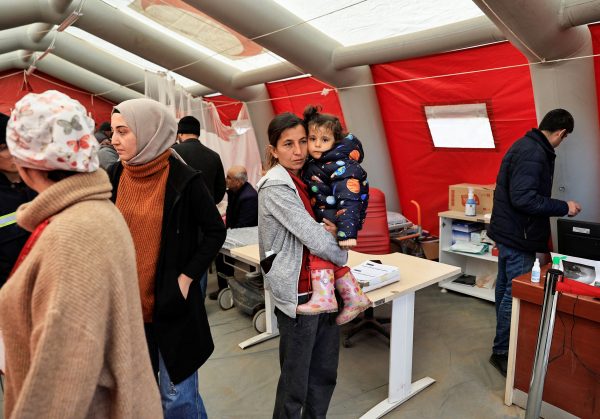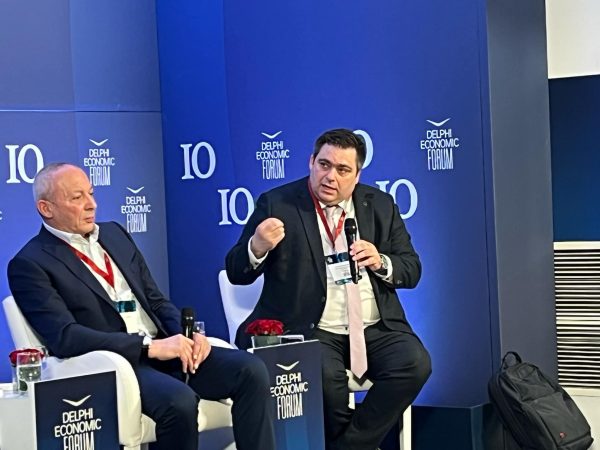
Recep Tayyip Erdogan is facing the biggest challenge of his political career.
And before the massive earthquake on February 6, the bet of his staying in power was not certain, yet with 40,000 dead and 82,000 buildings destroyed because in the quake, he can’t bet on himself either.
Proof of this is that the ever ready and usually brash Turkish president was slow to come out to offer words of sympathy to his people, who overnight lost everything, and even then he looked embarrassed and disoriented.
Kismet, fate in Turkish, he said, and that was that.
The refugee card
But Erdogan is a political animal and has proven many times in the past that, when backed into a corner, he finds within himself the inexhaustible strength to come out and attack again.
But what can a president do, who, since the first day of the unspeakable tragedy, has been the main accused of the construction shenanigans, which he allowed, with the known murderous results?
When Erdogan is not playing the jingoist card again and again, he plays with the refugee issue.
And this is one side of the earthquake, which has not yet revealed either its exact scope or its future consequences.
Racism and uncertainty
At the moment, unconfirmed information speaks of 2 million Turks, who will take the path of migration, but this number does not include the Syrians from both sides of the border of the great disaster, who will be driven to look for a better tomorrow – where else , in Europe – through Greece.
Already the first reports about the racism and uncertainty faced by Syrian refugees in Turkey made their appearance in the international press this weekend.
“Racism against the Syrians, fueled in recent years by the economic crisis, which turned 3.7 million refugees into scapegoats, has exploded since the earthquakes,” wrote Le Monde yesterday.

The non-governmental organization Stockholm Center for Freedom presented on its website the story of a Syrian refugee who risked his life when he went to collect his belongings from the wreckage of his Turkish employer.
Even as she ran to his defense, the remaining Turks, affected themselves, shouted that “the Syrians are stealing what is left of our homes, while the voices of our own people have not yet been silenced under the rubble.”
The lamentation was great, the rage poured out in every direction.
Leap of faith
That’s why 31-year-old Basel, who lost his home but managed to move his family into a tent in Turkish territory, only to be kicked out by the Turks there, who made it clear to him that he was not welcome among them, is thinking of risking it all and trying the great dreaded journey to Europe. 
The “between a rock and a hard place” dilemma is currently facing millions of earthquake victims, according to a related article in the Los Angeles Times, many of whom will take the aforementioned leap of faith.
It should be noted that Turkey accepted on its territory about 5 million people – including 4 million from Syria – to help the EU deal with the major refugee crisis in 2015 and 2016.
Of course, all this was done with the compensation and with other big profits for Erdogan and his country, for which then German chancellor Angela Merkel was accused, for having concessions to him for the 4-7 million Turks living on German soil.
Extreme decisions
In extreme situations, extreme decisions are made, and Erdogan can play extreme, as long as it serves his purpose.
So if he continues to maintain his power in any way he can, it does not matter if the elections will be held on May 14, as scheduled, or on June 18, when his second term ends and he is allowed by the Turkish constitution to be a candidate again.
But even when he decides to postpone the elections, extending the country’s state of emergency, analysts believe he will almost certainly instrumentalize the refugee issue in the way that will best help him.
Already Mevlet Çavuşoğlu made it clear at the beginning of the week that Turkey will not accept a new wave of refugees from Syria after the devastating earthquake of 7.8 Richter, leaving it up to the interpretation of those concerned who he may be addressing.
Pensive Athens
Athens, which has lived through these games of Erdogan with Brussels, was already prepared for a difficult 2023 before the seismic tragedy
Attempts to illegally enter Greek territory, not so much from the Evros as from the maritime borders, had increased since the autumn.
And now the Greek government expects that after the earthquake, and as soon as the weather conditions improve, they will hit red.
For both Turkey and Greece, the first 15 days of March are considered critical.
There it will be decided how quickly Erdogan can rebuild Turkey, what amount of aid he will receive and when exactly he will hold the elections.
History has shown that quick decisions help those in leadership.
The EU, for its part, is believed to be ready to disburse 3 billion in the first phase. to help Erdogan deal with refugees, as well as immigrants, because of the earthquake.
Athens & Ankara
But will this amount be enough for the Turkish president or will he choose to blackmail for more?
The apparent improvement in relations between Turkey and Greece due to the earthquake and its duration in time will also play a role in all of this.
However, Athens, which is also preparing for elections, as everything shows, on April 9, approaches Turkey with antennas raised and eyes wide open.
Spring will reveal what’s going on in Athens and Ankara…
Latest News

Airbnb Greece – Initial CoS Ruling Deems Tax Circular Unlawful
The case reached the Council of State following annulment applications filed by the Panhellenic Federation of Property Owners (POMIDA)

Mitsotakis Unveils €1 Billion Plan for Housing, Pensioners, Public investments
Greek Prime Minister Kyriakos Mitsotakis has announced a new set of economic support measures, worth 1 billion euros, aiming to provide financial relief to citizens.

Alter Ego Ventures Invests in Pioneering Gaming Company ‘Couch Heroes’
Alter Ego Ventures' participation in the share capital of Couch Heroes marks yet another investment by the Alter Ego Media Group in innovative companies with a focus on technology.

Corruption Still Plagues Greece’s Driving Tests
While traffic accidents continue to claim lives on Greek roads daily, irregularities and under-the-table dealings in the training and testing of new drivers remain disturbingly widespread

Pope Francis Died of Stroke and Heart Failure Vatican Confirms
As news of the official cause of death spread, tributes poured in from across the globe. The 1.4 billion-member Catholic Church is united in grief, remembering a pope who championed inclusion, justice, and compassion

Increase in Both Museum Visits, Revenues for 2024
As expected, the Acropolis was the top archeological site in the country, followed by Sounion, Mycenae, the ancient theater of Epidaurus, and Vergina in northern Greece

Where Greece’s Tourists Come From: A Look at 2025’s Top Visitor Markets
The United Kingdom continues to hold the top spot as the largest source of incoming tourism, with 5.6 million seats booked for Greece this summer — up 2.2% from last year. This accounts for 20% of all international air traffic to Greece

Pope Francis: A Pontiff Who Reshaped the Papacy and Sparked a Global Conversation
His first words from the balcony of St. Peter’s Basilica—“Brothers and sisters, good evening”—set the tone for a pontificate that would challenge norms, favor mercy over dogma, and bring the papacy closer to the people.

When Blue Skies was Unmasked as ND’s Political ‘Slush Fund’
The fact that so many top New Democracy (ND) party cadres were paid by the firm Blue Skies, owned by Thomas Varvitsiotis and Yiannis Olympios, without ever citing this publicly, raises very serious moral issues, regardless of the legality

Greek Women’s Water Polo Team Top in the World after 13-9 Win Over Hungary
The Greek team had previously defeated another tournament favorite, the Netherlands, to reach the final.











![Πλημμύρες: Σημειώθηκαν σε επίπεδα ρεκόρ στην Ευρώπη το 2024 [γράφημα]](https://www.ot.gr/wp-content/uploads/2025/04/FLOOD_HUNGRY-90x90.jpg)




![Ξενοδοχεία: Μεγάλο το ενδιαφέρον για επενδύσεις στην Ελλάδα – Η θέση της Αθήνας [γραφήματα]](https://www.ot.gr/wp-content/uploads/2025/03/Athens-hotels-90x90.jpg)
























 Αριθμός Πιστοποίησης
Αριθμός Πιστοποίησης